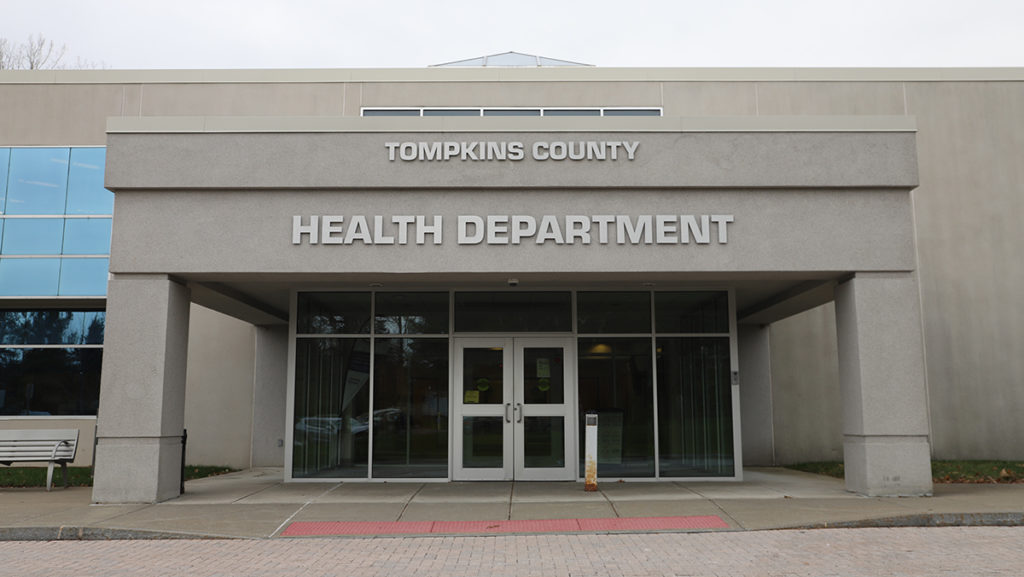The Tompkins County Health Department (TCHD) issued an alert Nov. 14 about the rise in both respiratory syncytial virus (RSV) cases and the flu in the community, while Ithaca College has provided recent updates about its COVID-19 policies.
RSV cases have been rapidly rising throughout the U.S., and the TCHD has alerted the Ithaca community about increases in cases in the area. RSV is a common respiratory virus that is highly contagious. It can cause cold-like symptoms for older children and adults but can be severe in infants and older adults.
“Symptoms of mild RSV are similar to those of the common cold, flu and COVID, and include runny nose, coughing, sneezing, fever, wheezing and decrease in appetite,” the TCHD said. “These symptoms usually appear in stages and not all at once.”
While there is not a vaccine currently being offered for RSV, the TCHD is recommending that community members get vaccinated for the flu, which also has rising cases in the community.
“Everyone ages 5 and older can receive an updated bivalent booster dose,” TCHD Medical Director William Klepack said in the TCHD alert. “Reducing the impact of the flu and COVID-19 will enable our healthcare system to be available to provide the care needed for managing severe cases of RSV and other illnesses. We need to have local capacity available to care for newborns, infants, immunocompromised and elderly adults.”
In a Nov. 15 email to the campus community, the college also recommended that community members stay up to date on their flu and COVID-19 vaccines. The college will be making significant changes to its COVID-19 policies in the coming weeks and will shift into a self-management mode in Spring 2023.
On Dec. 23, the college will no longer use Boothroyd Hall as an isolation space. According to the email, students who test positive will complete their isolation period in their own residence halls. Additionally, some aspects of the wraparound care will be discontinued, including meal retrieval services, as students will be allowed to pick up to-go meals from the dining halls.
“Moving forward, Boothroyd Hall will serve as a temporary housing space for students only in extenuating circumstances,” the college’s email said. “An example of this would be an immunocompromised individual who is unable to share a living space with someone who has tested positive for COVID-19. Exceptional circumstances will be evaluated on a case-by-case basis.”
Boothroyd Hall will still serve as a testing location for the campus community in the spring semester, with the hours of operation to be announced at a later date.
The college will also get rid of its online COVID-19 dashboard Dec. 23 and on Jan. 2, employees will no longer be required to submit positive test results. Employees who test positive and are unable to work will be required to use their own paid away time, because the college will no longer offer COVID-19 absences.









